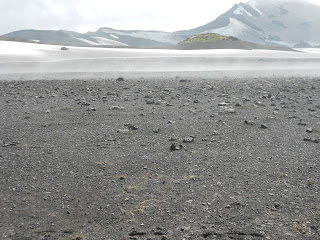| Viktoria Kay, Robert Hudson and Chris Connel |
Various themes were used in sketches to describe key events in British history including a Brian Clough spoof of King Harold, with an arrow through his eye, describing how his tactics let him down at the Battle of Hastings and blamed fixture congestion of battles up at York and and at Stamford Bridge for the defeat by William the Conqueror and then the cast appearing under the guise of the Strollin' Bones rock band touring the North of England with the Gospels until the reached Durham! My personal favourite bits though were the Ken Dodd impersonations about how St Cuthbert went to the library to ask for a book about American Indians, and the librarian said: 'Do you have a reservation'!
 |
| With Ian Geldard, of Geldard's Quiz |
Geldard's Quiz also ran a raffle to help raise much-needed funds for the Daisy Chain project courtesy of some generous prize donations by Sainsbury's, Morrison's and Saks Hair and Beauty. Ian, who delivered the quiz, also gives talks on autism from the sibling's perspective regarding his brother Mark who has autism and is also one of Durham County Council's youngest county councillors to add to his many talents.When I first heard Ian speak about his experiences of growing up with Mark, who has classic autism (at the more severe end of the autistic spectrum) it helped open me up to how autism, including Asperger's Syndrome, affects not just the individual on the autistic spectrum, but others around them, particularly their immediate family, and their perceptions. When growing up, Ian wondered why his brother had different food at meal times and why he went to a different school. The Geldard family are a huge inspiration to me as to how they make every effort to help Mark lead as fulfilling and as independent a life as is possible for him, despite the challenges that come along the way.
As shown by the Geldards, understanding within families affected by autism is important. Access to the right support for families can make a huge difference in enabling this. Of services that Daisy Chain provides is a group for autism siblings, where they can share thought and feelings, which can be accessed at the following link http://www.daisychainproject.co.uk/sibz In the meantime though, it's back to Salesforce.
Huge thanks to Ian Geldard for the raffle and also to Sainsbury's, Morrison's and Saks Hair and Beauty for their prize donations. Donations can still be made towards my Kilimanjaro challenge in aid of the Daisy Chain project, supporting families affected by autism. To find out more, you can visit my sponsorship page at http://www.justgiving.com/Chris-MitchellGNR/



